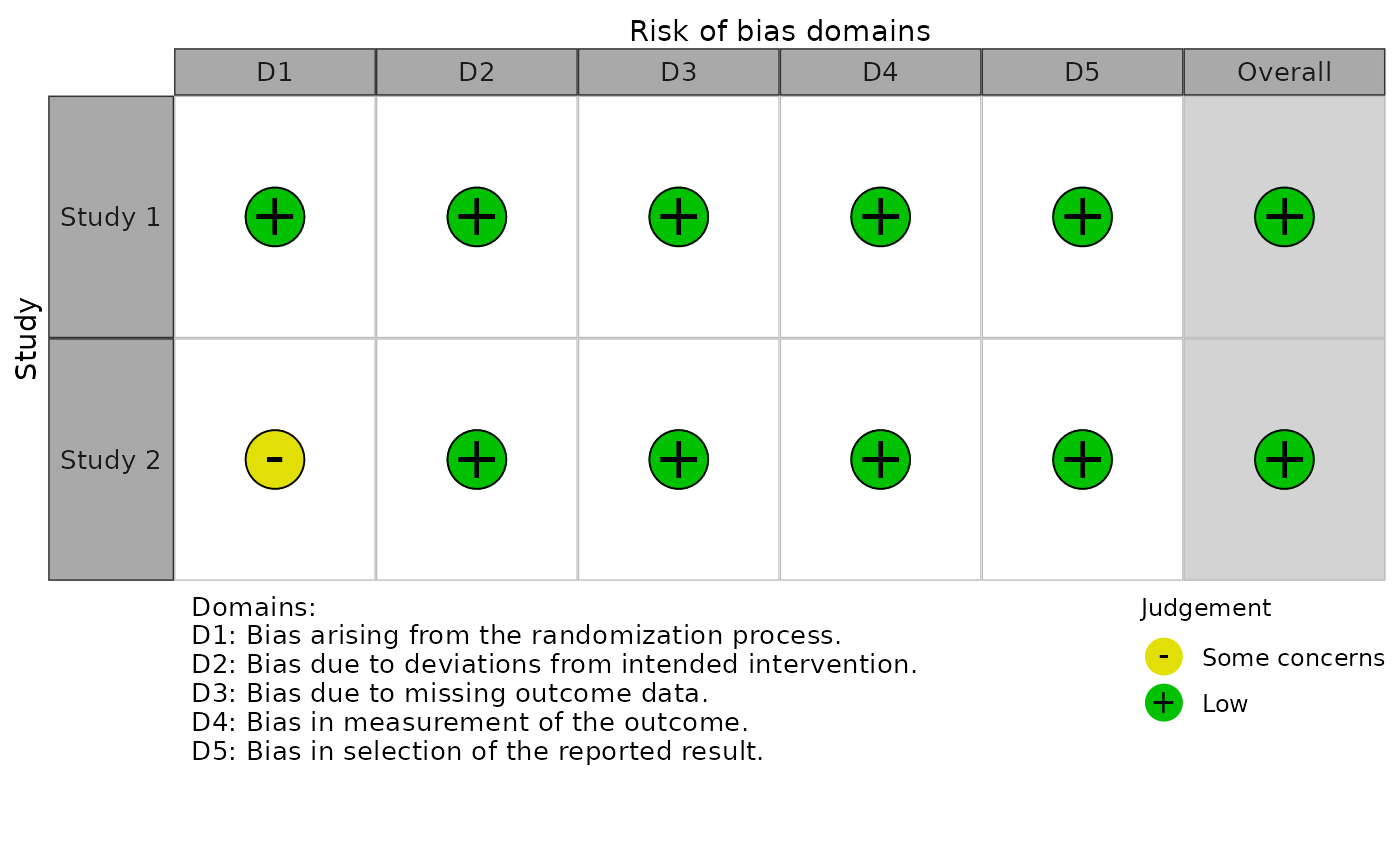Produce traffic-light plots of risk-of-bias assessments.
Source:R/rob_traffic_light.R
rob_traffic_light.RdA function to take a summary table of risk of bias assessments and produce a traffic light plot from it.
rob_traffic_light(
data,
tool,
colour = "cochrane",
psize = 10,
overall = TRUE,
...
)Arguments
- data
A dataframe containing summary (domain) level risk-of-bias assessments, with the first column containing the study details, the second column containing the first domain of your assessments, and the final column containing a weight to assign to each study. The function assumes that the data includes a column for overall risk-of-bias. For example, a ROB2.0 dataset would have 7 columns (1 for study details, 5 for domain level judgments, and 1 for overall judgement, in that order). See
- tool
The risk of bias assessment tool used. RoB2.0 (tool='ROB2'), ROBINS-I (tool='ROBINS-I'), and QUADAS-2 (tool='QUADAS-2') are currently supported.
- colour
An argument to specify the colour scheme for the plot. Default is 'cochrane' which used the ubiquitous Cochrane colours, while a preset option for a colour-blind friendly palette is also available (colour = 'colourblind').
- psize
Control the size of the traffic lights. Default is 10.
- overall
Logical, specifying whether to include an "Overall" risk of bias column in the resulting plot
- ...
Arguments to be passed to the tool specific functions.
Value
Risk-of-bias assessment traffic light plot (ggplot2 object)
See also
Other main:
rob_forest(),
rob_summary()
Examples
data <- data.frame(
stringsAsFactors = FALSE,
Study = c("Study 1", "Study 2"),
D1 = c("Low", "Some concerns"),
D2 = c("Low", "Low"),
D3 = c("Low", "Low"),
D4 = c("Low", "Low"),
D5 = c("Low", "Low"),
Overall = c("Low", "Low")
)
rob_traffic_light(data, "ROB2")
#> Warning: All aesthetics have length 1, but the data has 10 rows.
#> ℹ Please consider using `annotate()` or provide this layer with data containing
#> a single row.
#> Warning: All aesthetics have length 1, but the data has 2 rows.
#> ℹ Please consider using `annotate()` or provide this layer with data containing
#> a single row.
#> Warning: All aesthetics have length 1, but the data has 12 rows.
#> ℹ Please consider using `annotate()` or provide this layer with data containing
#> a single row.
